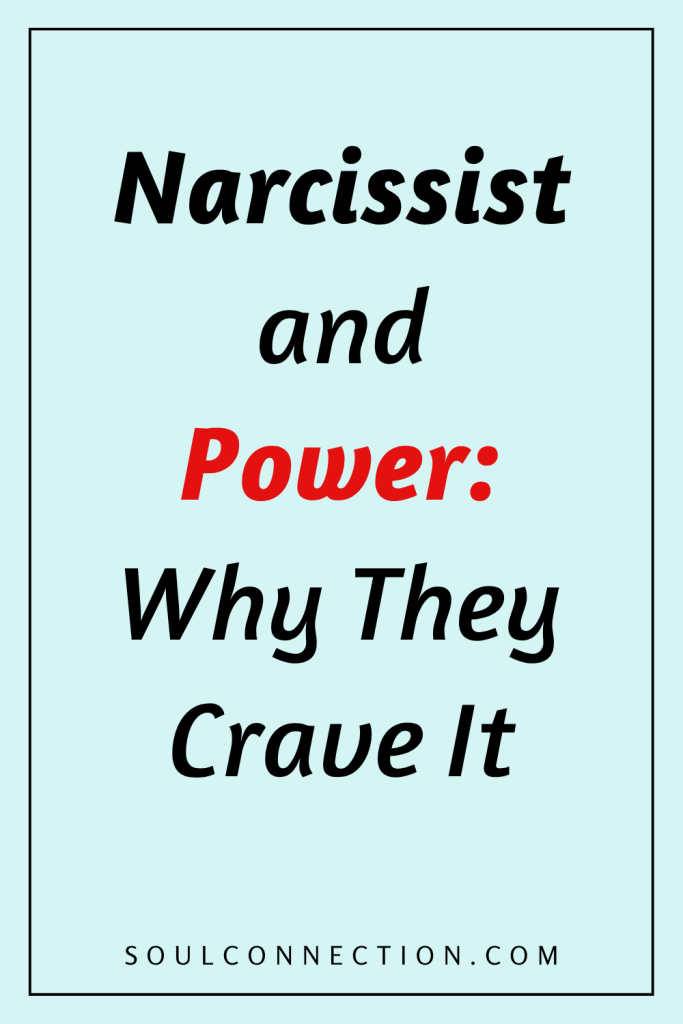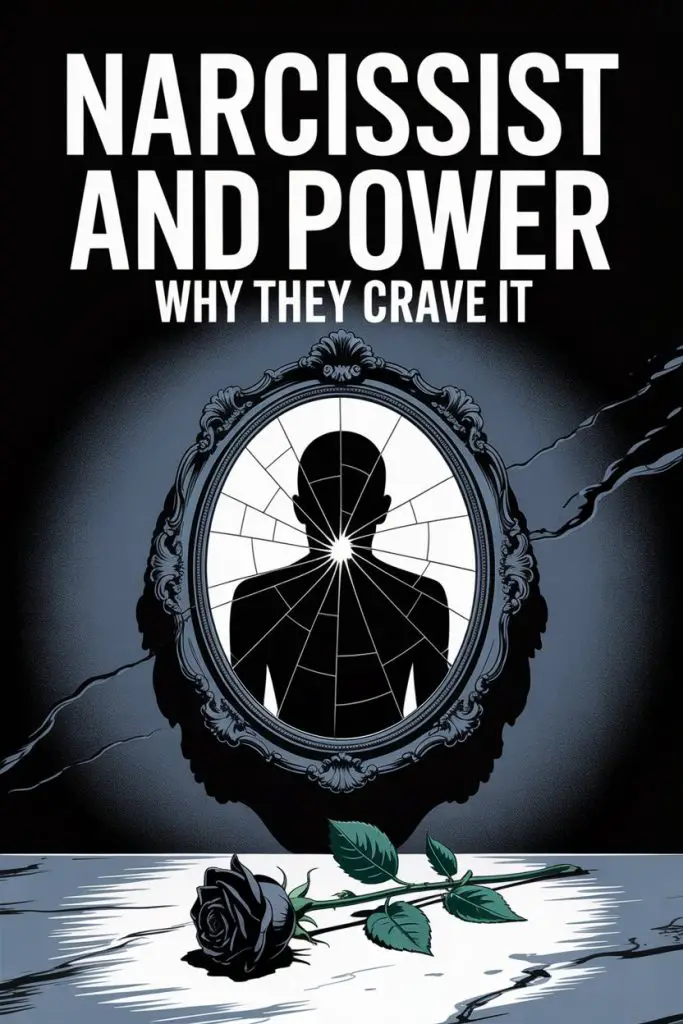Honestly, if you’ve ever found yourself wondering why some people seem to treat relationships like a never-ending episode of Game of Thrones, you may be tangled up with a narcissist.
Power struggles, dramatic monologues, and an uncanny ability to always, magically, make it about them—yes, the narcissist’s relationship with power is a tale as old as time (and just as exhausting).
Buckle up. We’re about to unpack why narcissists seem to need power the way toddlers need snacks—constantly, desperately, and with zero chill.
A Quick Note on Narcissism
We’re not talking about your mate who takes a few extra selfies or the guy at work who name-drops his cat’s Instagram. Clinical narcissism sits on a spectrum and goes beyond confidence or vanity.
Think grandiosity, a bottomless pit for validation, and an uncanny knack for emotional manipulation.
Living or loving in proximity to it? That’s a wild ride, my friend.
Power as Oxygen
For a narcissist, power is more than just a cherry on top—it’s the whole sundae. The sense of control, influence, and dominance acts like emotional oxygen.
Without it, they start gasping for air. Imagine a garden gnome who needs to rule the garden, not just decorate it.
Why does power feel so essential? Deep down, narcissists don’t feel as secure or special as they want the world to believe.
Power becomes a quick fix: a way to mask insecurities, distract from shame, and keep a lid on that raging sense of unworthiness.
Control Is the Name of the Game
Ever tried to play Monopoly with someone who changes the rules halfway through? That’s what interacting with a narcissist can feel like. Power means control, and control means safety (for them, not necessarily you).
Narcissists crave predictability in their environment. They like to know where all the pieces are and, more importantly, who’s holding the dice. That way, nobody can threaten their ego or—heaven forbid—outshine them.
It isn’t just theatre. It’s survival (at least, from their perspective).
Attention as Currency
Power and attention go together like tea and biscuits. Narcissists chase admiration the way the rest of us chase our lost Wi-Fi signal. Validation is their emotional currency.
The more power they wield, the more eyes on them. More applause, more affirmation, more chances to soak in “proof” of their specialness.
Once that spotlight dims? Cue the frantic scramble for a new stage.
Relationships as Power Plays
A narcissist rarely enters a relationship just to share a pizza and binge Bridgerton. Every interaction has an edge, a subtle (or not-so-subtle) contest for dominance.
Who gets the last word? Who apologises first? Who plans the weekend away? Spoiler: it’s probably not you.
Power isn’t just about being in charge. It’s about having the upper hand emotionally. Emotional leverage is their favourite hobby.
If they sense you’re slipping out of their orbit, expect a sudden burst of love-bombing—or a passive-aggressive guilt trip worthy of an Oscar nomination.
The Need to Win—Always
Winning: it’s not everything, it’s the only thing. At least, if you ask a narcissist.
Losing—an argument, a friend, or even the remote—is a personal affront. Anything that feels like a loss is intolerable because it cracks that fragile shell of superiority.
They’ll rewrite history, gaslight, or shift the blame before admitting defeat.
Power becomes the shield that keeps vulnerability at bay. Admitting wrong? That’s for mere mortals.
Empathy Deficit
Empathy is great for knitting circles and therapy groups, but for narcissists, it’s a luxury they can’t afford. The less they empathise, the easier it is to see people as chess pieces, not partners.
Without much empathy in the tank, they’re immune to guilt about power games. If you’re left feeling bulldozed, it’s not personal—they just don’t really notice (or care) about the collateral damage.
Status and Superiority
Power brings perks: admiration, obedience, maybe a few cronies. Narcissists collect these tokens like kids with footy cards.
The more status they accumulate, the more they can convince themselves—and everyone else—of their importance.
For them, a power imbalance isn’t a problem; it’s the point. Any threat to that pecking order? Prepare for claws.
The Cycle of Idealise and Devalue
Ever felt like a goddess one minute and a doormat the next? Narcissists love to alternate between putting you on a pedestal and knocking you off it—fast.
This cycle isn’t random. Idealising keeps you hooked; devaluing keeps you off balance. Both are about holding the reins. If you’re always trying to “get back” to the good times, they stay firmly in charge.
Why Is This So Hard to Spot?
Narcissists don’t show up wearing a “Hi! I’m here to suck all the power out of the room” t-shirt. Charm, wit, and confidence often mask the neediness underneath. They make power grabs feel like flattery, or concern, or even romance.
Gaslighting is another party trick. If you ever find yourself doubting your own memory or feeling guilty for, well, having feelings—there’s a good chance you’ve stumbled into narcissistic territory.
Is There Room for Change?
Short answer: rarely. Longer answer: not unless there’s a strong incentive and external pressure (think: a dramatic intervention, not a polite chat over coffee).
Narcissists rarely see a problem with their hunger for power. Why would they? It’s gotten them applause, attention, and probably a few reluctant admirers along the way.
But people have been known to surprise us. Sometimes, a big enough life event, therapy with a professional who won’t stand for nonsense, or a complete social meltdown can jolt some self-reflection.
How to Take Back Your Power Tonight
If you’re tiptoeing around a narcissist’s ego, it might feel like you’ve lost the script to your own life. Reclaiming your peace doesn’t require a dramatic showdown or a world-class therapist (though, let’s be honest, that wouldn’t go amiss).
- Set rock-solid boundaries. Be clear about what is and isn’t up for debate. Don’t apologise for needing respect.
- Spot the power games. If an argument suddenly pivots to your “many flaws,” congratulations—you’ve caught a power play in action.
- Don’t feed the drama llama. Narcissists thrive on reaction. Grey rock it: stay calm, limit your emotional response, and don’t rise to their bait.
- Seek backup. Friends, a counsellor, or even an online support group. The point is simple: don’t do this alone.
- Self-care isn’t selfish. Refill your tank; you’re no good to anyone if you’re running on empty (least of all yourself).
- Know when to walk away. Sometimes, the most powerful move is simply to step back, slam the metaphorical door, and reclaim your own power.
The Power Tug-of-War—And Why You Don’t Have to Play
Narcissists will always crave power—the same way toddlers crave glitter glue and chaos. But your sanity doesn’t have to be collateral damage.
The trick is spotting the game, refusing the bait, and remembering you’ve got choices.
Take back your own script. Because living under someone else’s thumb? That’s no way to run a household, a relationship, or, frankly, a Tuesday night.
And if you ever need a reminder, just picture them wearing that “Hi! I’m here to suck all the power out of the room” t-shirt. You’ll get through it with your sense of humour—and your power—intact.


